 Walt Whitman
Walt WhitmanGretchen, who so often contributes such thoughtful remarks at this blog, recently asked me to reply to her about what makes good poetry. She acted as the muse I needed to say something about that.
The best way to become a better poet is to read as much poetry as you can, to find the poets who really speak to you and read that, read lots of it, and live it as you read it. Teachers can help, but the thing is to find your voice.
I think this is why I love reading about poets whom I love, about their struggles to break away from the marble icons in order to find what it is they want to say, and how to say it. It is a journey that has joy but it also hurts. It is very intense. Each poet has that poem that represents a turn about: with Wright, I think, it is when he ended his poem by saying, "I have wasted my life." This is also what Berryman is saying when he admits he wanted to "be Yeats." Until you break through to your real self, you will never write the poetry you are meant to write.
You feel it when it happens, when you express something with great clarity and beauty (even if it is a terrible subject), and control.
Beyond that, I think we all have to work at finding the right metaphors, not to strain after the metaphors, but to find the ones that feel natural, the ones that sing. I have been reading Ask the Dust by John Fante, and his work is so simple, and the metaphors are so perfect that reading his story is effortless and at the same time exhilarating. Again, find the authors who take you to your threshold. In Poetry As Survival, Gregory Orr devotes a chapter to "The Edge as Threshold." He uses "threshold" as in psychology, to mean "the point where a stimulus is of sufficient intensity to produce an effect."
Orr says something that I have believed for a long time, that "arguments about taste, about whether a particular poem is 'great' or not, simply have to do with differences in readers' thresholds." I'm reminded of a story that Eileen Simpson tells about John Berryman and Delmore Schwartz. Once Schwartz was at the Berrymans' house and John played a record he was really hot for Delmore to hear, one by Bessie Smith. John was excessively moved by it and wanted to share it with Delmore. But as the record played, Delmore got out of his chair and moved around the room restlessly. The record just didn't bring Delmore Schwartz to his threshold; it had nothing to do with whether Bessie Smith was "great" or not. As Orr states, "The essential point is that for a poem to move us it must bring us near our own threshold."
Orr also mentions Whitman (a poet who did little for me when I was in my twenties, but now I hang on his every word). Orr says that Whitman intended for people to not just go to the threshold but "to venture further out than they were accustomed to going and thereby to stretch themselves and extend their spirits." Orr quotes from Whitman:
Long have you timidly waded holding a plank by the shore
Now I will you to be a bold swimmer,
To jump off in the midst of the sea, rise again, nod to me, shout, and
laughingly dash with your hair.
(Song of Myself)
Finally, Orr explains quite clearly what the effect of being brought to your threshold means: "That effect is both a sudden awareness of the disorder (the initiating moment of feeling destabilized) and the imagination's ordering response to it." He also says, "We must feel genuinely threatened or destabilized by the poem's vision of disordering, even as we are simultaneously reassured and convinced by its orderings."
Going back to the Whitman poem (next to which I marked "Wow" in Orr's text), I can clearly see why these words move me. It is because I am afraid of water and have a memory of taking swimming lessons and being told to let go of the ledge. I remember how scared I was, how I kept reaching for the ledge. I know I also do this in life; I am always looking for a ledge to steady me so that I'm not lost in the abyss. But I also know the joy of water. There have been moments when I've pushed off the side of the pool and gloried in the freedom of water, when I've been that "bold swimmer." That poem really hits me where I live every day.
The best way to become a better poet is to read as much poetry as you can, to find the poets who really speak to you and read that, read lots of it, and live it as you read it. Teachers can help, but the thing is to find your voice.
I think this is why I love reading about poets whom I love, about their struggles to break away from the marble icons in order to find what it is they want to say, and how to say it. It is a journey that has joy but it also hurts. It is very intense. Each poet has that poem that represents a turn about: with Wright, I think, it is when he ended his poem by saying, "I have wasted my life." This is also what Berryman is saying when he admits he wanted to "be Yeats." Until you break through to your real self, you will never write the poetry you are meant to write.
You feel it when it happens, when you express something with great clarity and beauty (even if it is a terrible subject), and control.
Beyond that, I think we all have to work at finding the right metaphors, not to strain after the metaphors, but to find the ones that feel natural, the ones that sing. I have been reading Ask the Dust by John Fante, and his work is so simple, and the metaphors are so perfect that reading his story is effortless and at the same time exhilarating. Again, find the authors who take you to your threshold. In Poetry As Survival, Gregory Orr devotes a chapter to "The Edge as Threshold." He uses "threshold" as in psychology, to mean "the point where a stimulus is of sufficient intensity to produce an effect."
Orr says something that I have believed for a long time, that "arguments about taste, about whether a particular poem is 'great' or not, simply have to do with differences in readers' thresholds." I'm reminded of a story that Eileen Simpson tells about John Berryman and Delmore Schwartz. Once Schwartz was at the Berrymans' house and John played a record he was really hot for Delmore to hear, one by Bessie Smith. John was excessively moved by it and wanted to share it with Delmore. But as the record played, Delmore got out of his chair and moved around the room restlessly. The record just didn't bring Delmore Schwartz to his threshold; it had nothing to do with whether Bessie Smith was "great" or not. As Orr states, "The essential point is that for a poem to move us it must bring us near our own threshold."
Orr also mentions Whitman (a poet who did little for me when I was in my twenties, but now I hang on his every word). Orr says that Whitman intended for people to not just go to the threshold but "to venture further out than they were accustomed to going and thereby to stretch themselves and extend their spirits." Orr quotes from Whitman:
Long have you timidly waded holding a plank by the shore
Now I will you to be a bold swimmer,
To jump off in the midst of the sea, rise again, nod to me, shout, and
laughingly dash with your hair.
(Song of Myself)
Finally, Orr explains quite clearly what the effect of being brought to your threshold means: "That effect is both a sudden awareness of the disorder (the initiating moment of feeling destabilized) and the imagination's ordering response to it." He also says, "We must feel genuinely threatened or destabilized by the poem's vision of disordering, even as we are simultaneously reassured and convinced by its orderings."
Going back to the Whitman poem (next to which I marked "Wow" in Orr's text), I can clearly see why these words move me. It is because I am afraid of water and have a memory of taking swimming lessons and being told to let go of the ledge. I remember how scared I was, how I kept reaching for the ledge. I know I also do this in life; I am always looking for a ledge to steady me so that I'm not lost in the abyss. But I also know the joy of water. There have been moments when I've pushed off the side of the pool and gloried in the freedom of water, when I've been that "bold swimmer." That poem really hits me where I live every day.



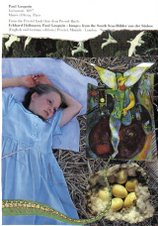


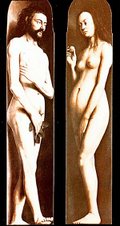

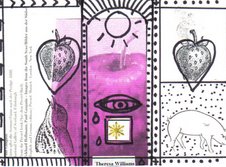
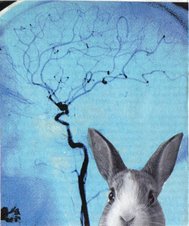
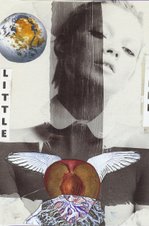
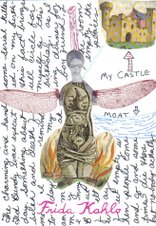
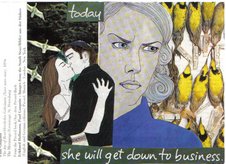

4 comments:
“Existentialism means that no one else can take a bath for you”
Delmore Schwartz
“Love is the most difficult and dangerous form of courage. Courage is the most desperate, admirable and noble kind of love.”
Delmore Schwartz
Thanks for the mention and moving remarks, Theresa.
I just read Delmore Schwartz' "The Poet" - captures the struggle with shame of the writer- The task is to "swim" beyond this- with love-
Gretchen
Teresa, I have to gather my thoughts after reading this. You have touched on so much here that speaks to me both as a reader and a writer.
I love this concept of the "threshold". Sounds like it pertains particularly to poems, but I think it bleeds over into stories, too. You mention that Whitman meant nothing to you earlier in life but means a great deal to you now. I think it can also go the other way. I read the story "Pet Milk" by Stuart Dybek in college and was absolutely MOVED by it. I read it again last year and was disappointed that I didn't feel the same way about it anymore. I still like the story; I think it is a very good one. But I no longer feel whatever I felt at the time of my first reading to think it is brilliant. Must have to do with my threshold!
Thank you for introducing me to Delmore Schwartz. Walt Whitman is one of my favorites, too. I keep O Captain! My Captain! posted above my desk, along with a much shorter one that I like even more: I Bequeath Myself to the Dirt. Teagrapple
Post a Comment